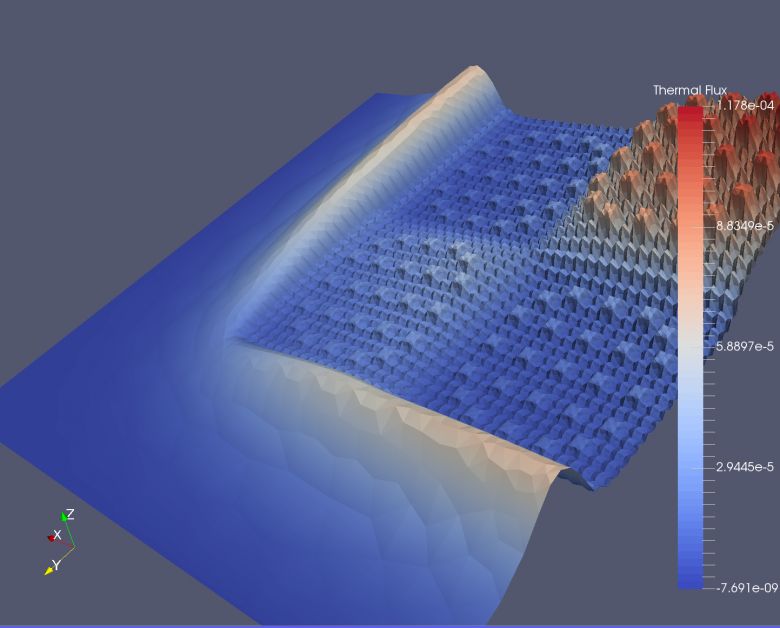Centre for Sustainable Engineering
Predictive Modelling for Nuclear Engineering (Early Career Fellowship)
| Principal investigator: | Andrew BUCHAN |
| Funding source(s): | E.P.S.R.C |
| Start: 19-06-2017 / End: 18-12-2020 | |
| Amount: £464161 | |
| Research Centre: |

Computer models have for decades played a central role in assessing the behaviour of nuclear power facilities, they have ensured nuclear operations remain safe to both the public and the environment. This project will develop a new and highly advanced modelling capability that is accurate, robust and validated. A new multi-physics, predictive modelling framework will be formed for simulating neutron transport, fluid flows and structural interaction problems. It aims to combine novel and world leading technologies in numerical methods and high performance computing to form a simulation tool for geometrically complex, nuclear engineering problems. This will surpass current computational capabilities, by providing modelling accuracy to the levels required through the use of efficient adaptive resolution, and will tackle grand challenge problems such as full core reactor modelling. This model will be developed within a predictive framework that combines modelling with uncertainty and experimental data. This is a vital component as inherent uncertainties in data, geometry, parameterisations and measurement will place uncertainties in the modelled predictions. These uncertainties will be integrated within the calculations in order to quantify the uncertainty they place on the final result.
The combination of all these technologies will result in the first modelling framework of its kind, offering unprecedented detail through optimised resolution with combined uncertainty quantification and data assimilation. It will provide substantially improved analysis of nuclear facilities; it will improve operational efficiency and, ultimately, help ensure its safety. The project will work closely with world leading academics and industry, both within the UK and overseas. This collaboration will result in the technologies being used to analyse future reactor designs, as well as those reactors due to be built in the UK over the coming years.

